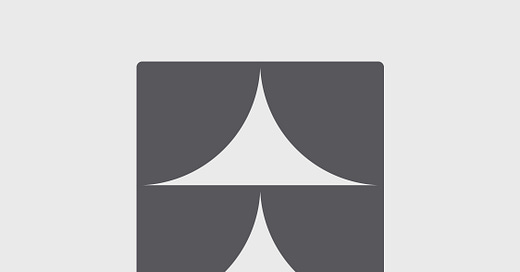Weekly Briefing: How Weimar+ Could Reshape the Eurasian Security Order
How France, the UK, Germany, and Poland are reshaping their continent's security.
This week’s Briefing is unique.
Instead of tackling emerging news headlines through a neoclassical relist lens like I normally do on a Saturday, today I’ll be touching on something that is more systemic, but no less important.
I’m referring to the new geopolitical bloc emerging within Europe – a direct response to ongoing volatility in the transatlantic relationship, war in Ukraine, spoiler-state obstructionism from within the EU, and the rise of great powers in the Indo-Pacific. In this fragmented multipolar system marked by resurgent power politics, it’s no surprise that we’re seeing a post-Cold War political platform re-emerge.
I’m talking about Weimar+, a constellation of European nations whose leaders are currently birthing a new mode of European diplomatic and security posture. Building on the ‘Weimar Triangle’ of the early 1990s – an effort by France and Germany to anchor Poland to Western institutions and stabilise Central Europe, this political grouping is not just reactionary – it’s becoming more proactive.
Weimar+ features four core members: France, Germany, Poland + the UK – for now. Italy and Spain are also affiliated with this emerging format, but their high-level participation is more tacit at this stage.
Don’t be mistaken – this is not the ‘European strategic autonomy’ that has been vaunted as a gold standard EU response. That idea has been floating around since the 1950s – and as all good realists know, it is not a realistic goal in the near term, but some still got a great kick out of debating the prospect at University lecture halls.
No. This is something different, and the clues are in the details and membership.
Weimar+ is more or less synonymous with the ‘Coalition of the Willing’, which emerged as a direct result of Trump’s move to sideline European leaders in proposed US-Russia-Ukraine peace talks. Weimar+ embodies the catchphrase: ‘Nothing about Ukraine without Ukraine, but that’s evolved too. European leaders within this emerging constellation are zeroing-in on a more versatile and realistic mode of collective European foreign policy decision-making.
British Prime Minister Starmer and French President Macron, sensing Germany’s re-emergence as a more serious strategic actor following the election win by Friedrich Merz’s CDU/CSU Party, have engaged swiftly and effectively alongside Poland’s Donald Tusk to coordinate high-level visits to Kyiv – a sign that Weimar+ is now fully operational (again).
But it’s not the 1990s anymore – the goals of Weimar+ are both enduring and different.
Instead of keeping Poland ‘in’ and Central Europe ‘together’, as was the case in the 1990s, the task is now to keep Russia ‘out’ and Europe as a whole – not just ‘together’, but firmly united to secure credibility at the negotiating table in front of Trump and Putin.
And this time, they’ve got a very eligible ally to do the heavy lifting – the UK. The significance of the UK’s buy-in as the most prominent (+) to this Weimar platform cannot be overstated. In fact, the UK is (quite arguably) the most important actor in this emerging arrangement.
Here’s why: The UK, aside from its fantastic geography (surrounded by sea) and nuclear deterrence, not to mention Five Eyes intelligence capabilities, is proving that it can leverage its longstanding and ‘special’ relationship with the White House and keep lines of communication open and constructive when it comes to Ukraine. Continental Europe needs the UK now more than ever – for this kind of credibility and transatlantic manoeuvring, but also because of its relative isolation without it. France and Germany alone are not credible enough in front of America or Russia, but with Poland and the UK on board, that’s enough to get heads turning in Moscow and Washington.
But Weimar+ is more than just a coalition of the willing - it’s willing and able.
The strategic forces of France and the UK – which combined provide full-spectrum military capability, including nuclear deterrence, expeditionary power, and intelligence reach – along with Poland’s high-calibre land warfare readiness and forward-deployed posture, and Germany’s advanced logistics, air defence, and industrial depth, make for a more formidable collective than first meets the eye. If we step into the shoes of a Russian security strategist, this emerging geopolitical bloc is not ideal for two reasons:
Firstly, Weimar+ represents something more formidable at its core: A strong, capable, nuclear-armed European Pillar of NATO that would (in the worst case), likely survive any high-level decoupling from the US-NATO command and abandonment by smaller states like Hungary or Slovakia.
That surfaces the second major concern – the long-term impact on the Balance of power in Eurasia. From Japan to Portugal, security for many nations has been determined by the willingness and ability of the US to intervene in far-away conflicts to secure the continuity of a rules-based system in which American dominance was a feature, not a bug of the international order.
Today in Europe and elsewhere, that same American dominance is perceived more as a bug, not a feature. And in that context, the question on the lips of strategists in Beijing and Moscow – even Tehran and Riyadh – is what does this ad hoc, pragmatic, and interest-driven configuration really mean for the Eurasian security architecture?
It means that Europe will not so easily give up its long-term strategic relevance, both as a regional stabiliser and economic superpower, but also as a dynamic actor that can shift shapes depending on the strategic demand. The UK’s critical role in this emerging configuration reflects the same flexibility and strategic instinct that have long animated Europe’s balance of power.
In today’s world, Weimar+ offers Europe more than deterrence, it offers direction and leadership. Not as a replacement for the transatlantic bond, but as a contingency against its erosion. And that alone marks a quiet but significant shift in Europe’s strategic self-conception — from protected to protector.




